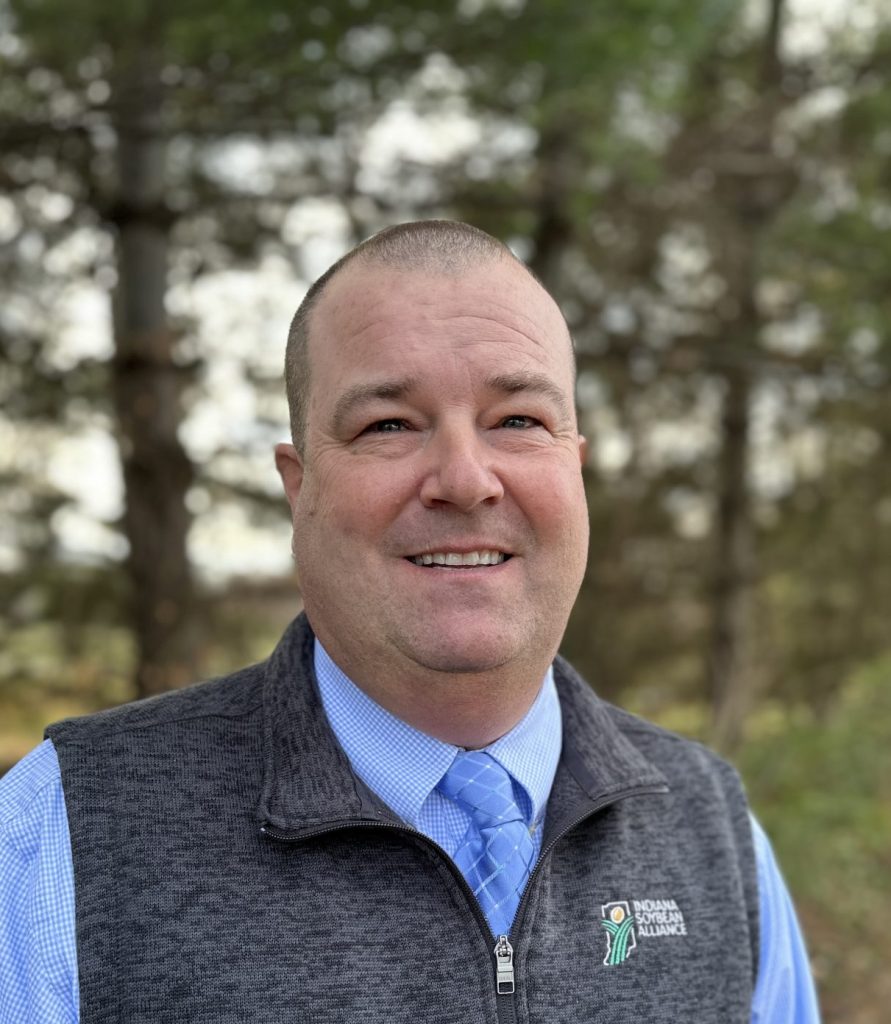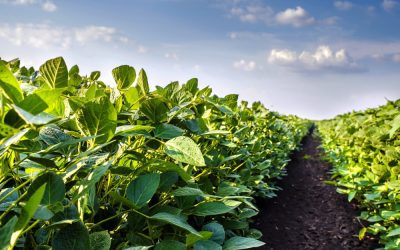Soybean checkoff supports Indiana growers
By Brian Warpup, chair of the Indiana Soybean Alliance Membership and Policy Committee
As the chair of the Indiana Soybean Alliance’s Membership and Policy Committee (M&P), the hours I spend away from the farm often involve talking to state or federal lawmakers or reading proposals of new laws or regulations. The legislative process is important. If farmers don’t represent themselves, no one will do it for us.

Each growing season brings challenges. We adjust to weather that is either too wet, too dry, too hot or too cold. We battle yield loss from insects or weeds. We calculate the economic problems of rising input costs against declining crop prices. And we keep a close eye on changes in government policies and regulations in Indianapolis and Washington, D.C.
Farming, though, requires much more than what I’ve listed. To be a successful farmer, you also need to develop new markets for your crops within the United States and around the world. You need to create new products made
from your crops to increase their value on the open market.
You need to study new research from universities and other independent sources to ensure you’re following
the best practices. Research that shows ways to improve the quality of your soil; research that advises you on
rates for applying fertilizer for your soil type; research that explains techniques to improve water quality. As
farmers, we take good care of the environment because we live where we farm.
While I am an expert when it comes to managing the weather, weeds or insects, I can use help with the other tasks. As independent as I am, I often realize I need partners to get the job done well.
For many Indiana soybean farmers, a key partner is the state’s soybean checkoff program. The Indiana Soybean
Alliance is the state’s soybean checkoff. ISA programs focus on four specific areas: Market Development, Value Creation, Producer Engagement and environmental, economic and social Sustainability.
Market Development is the process of finding new places to sell soybeans. Sometimes that means meeting buyers in other countries such as Mexico, Dubai or Indonesia. Buyers in these far-off places often want to meet the farmers who grow these crops. They want to ask questions about how we farm. And it’s been my experience that most of these buyers are impressed with our work and our products.
Value Creation includes new products made from soybeans. Soybean-based plastics is a new field, so are oils and lubricants. Each year we host a Student Soybean Innovation Competition at Purdue University to discover new products that can be made from soybeans.
Producer Engagement means getting farmers to take part in the projects, programs and research created through the checkoff as a benefit for their farms.
Finally, we describe Sustainability as a three-legged stool: one leg is environmental sustainability, another leg is economic sustainability, and the last leg is social sustainability. Environmental Sustainability means doing the things on our farm that will guarantee that our land and water will support us for future generations. Economic sustainability means that any new growing practice should consider the farm’s profitability. Social Sustainability means growing our crops in a way that is acceptable to our customers.
Without regret, we are proud of ISA’s work, and we try to support them with legislation that improves the programs. It is true that many hands can make the work brief. But it’s also true that skilled hands are better. I believe our state’s checkoff programs are those skilled hands.
Posted: March 21, 2025
Category: Indiana Corn and Soybean Post - March 2025, ISA M&P, Membership and Policy, News



